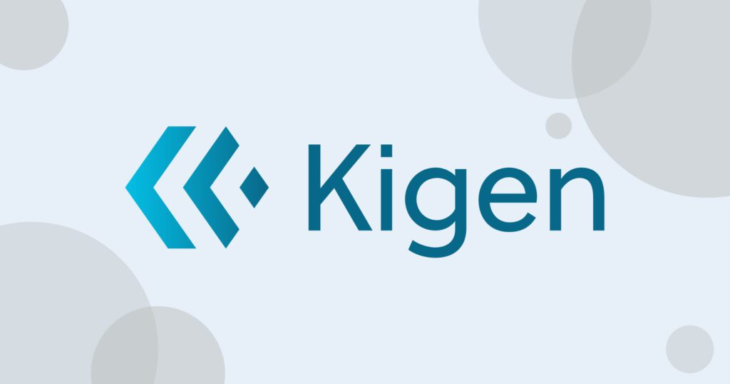
In an exciting step forward for the IoT (Internet of Things) ecosystem, Particle, the leading edge-to-cloud infrastructure for intelligent devices, has partnered with Kigen, the global leader in eSIM and iSIM technology, to make IoT development easier to manage, more scalable, and globally accessible.
Both companies share a vision to empower developers and enterprises to build IoT solutions that can scale efficiently while maintaining secure, reliable connectivity, taking advantage of the latest features in eSIM architectures.
The Challenges of Scaling IoT Connectivity
As IoT adoption grows across industries, one of the major challenges for developers has been managing cellular connectivity at scale. Traditional SIM cards, along with the complex GSMA SGP.02 standard governing eSIM (Embedded SIM), have been difficult to integrate and scale across diverse environments requiring interoperability.
This stems from how the infrastructure between different network providers ensures compatibility, often creating friction in the scaling process and making it harder for IoT developers to deploy solutions globally.
Increasingly, IoT enterprises and manufacturers need to deploy products in regions of heterogeneous connectivity or access multiple networks to ensure resiliency and availability of remote assets. For this, Remote SIM Provisioning needs to be simpler to implement for providers and end enterprises.
The introduction of GSMA SGP.32 changes the game. This standard brings the eIM (eSIM IoT Manager) into the picture, simplifying IoT management by leveraging the widely adopted consumer eSIM infrastructure. The eIM works in concert with IoT Profile Assistant, which can have two configurations – one that’s resident in the eUICC and another on the device.
Now, developers have access to tools that make it easier to scale IoT devices while ensuring they meet regulatory and technical requirements. This evolution aligns perfectly with Particle’s mission to create a seamless, secure, and scalable IoT experience.
Note: SGP.32 eUICCs can’t be certified until 2025, awaiting the readiness of the GSMA compliance program for IoT eSIM, but Kigen is ready with its eIM implementing functionality to enable Indirect Profile download with its consumer eUICC. This solution makes SGP.32 advantages available now, and removes any dependency on the existing SM-DP+ thanks to indirect profile download and devices thanks to the profile assistant being in the eUICC itself.
Kigen’s Leading Role in Simplifying IoT at Scale
Kigen has played a pivotal role in shaping these GSMA specifications, including SGP.32, which focuses on simplifying the implementation of eSIM solutions for IoT devices.
By supporting eIM functionality, Kigen’s technology makes it possible for IoT developers to manage devices remotely, perform over-the-air updates, and optimize device connectivity without the need for physical SIM cards or complicated deployment processes.
This new era of IoT management, driven by Kigen’s innovations, is especially important for enterprises managing large fleets of devices across different geographical locations. The ability to remotely manage SIM profiles and ensure continuous connectivity is critical in sectors like asset tracking, smart cities, industrial automation, and more.
Particle’s Adoption of Kigen Technology
Particle’s decision to adopt Kigen’s commercially available and certified consumer eSIM SGP.22 solution marks a major step forward in the IoT landscape.
By aligning with GSMA SGP.32, Particle ensures that its devices are fully compatible with the latest global standards. Some of the key features of this adoption include:
- Certified Consumer eUICC: Kigen’s solution provides a compact OS (operating system) for consumer eUICC
- IoT Profile Assistant in the eUICC (IPAe): Designed to support new IoT use cases at scale, the IPA configured on eUICC allows enhanced SIM provisioning capabilities and polling.
- Fleet management via eIM: Compatibility with SGP.32 enables Particle to leverage the eIM for remote eUICC management, allowing IoT fleets to be managed more efficiently. This helps Particle customers monitor and update devices in real-time, ensuring seamless connectivity and performance across diverse environments.
- In-factory provisioning: Kigen also supports an in-factory provisioning solution, streamlining the deployment process for IoT devices. This involves downloading the IoT and Satellite Non-Terrestrial Network profiles through Particle’s IoT Profile Assistant in the IoT Device (IPAd).
With the first deliveries completed in September 2024, this solution simplifies the process of bringing connected devices to market while ensuring compatibility with multiple carriers and networks.
Expanding into Non-Terrestrial Networks (NTN)
This collaboration with Kigen also opens new doors for Particle as the company ventures into Non-Terrestrial Networks (NTN). NTNs, which include satellite-based connectivity, are critical for IoT solutions that operate in remote or hard-to-reach areas, where traditional cellular infrastructure may not be available.
Device makers can now rely on their devices to control switching between connectivity profiles, and this granular switching control is even more crucial between terrestrial and NTN. By integrating Kigen’s advanced eSIM technology, Particle is well-positioned to deliver IoT solutions that can operate in even the most challenging environments.
A Shared Vision for the Future of IoT
At the heart of this partnership is a shared commitment to simplifying IoT development and empowering developers with tools that can scale their solutions globally. With Kigen’s expertise in eSIM and iSIM technologies and Particle’s comprehensive IoT platform, developers now have access to powerful, scalable, and secure IoT solutions.
By removing the barriers to cellular connectivity and providing robust fleet management tools, Particle and Kigen are enabling companies to focus on innovation and growth rather than the complexities of IoT infrastructure. Whether it’s deploying industrial automation systems, connecting smart cities, or launching devices into space, this partnership provides the foundation for the next generation of IoT solutions.
This collaboration demonstrates the potential for IoT ecosystems to scale rapidly while maintaining flexibility and security, making it a crucial development for the future of connected technologies.
More information will be available about this solution at Particle’s booth at Embedded World North America in Austin, Texas from October 8th to 10th.


